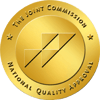Relapse is a common concern for anyone on the journey to sobriety. At Soberman's Estate Men's Residential Treatment Center, we believe that a proactive approach to relapse prevention is essential for long-term recovery. A well-thought out relapse prevention plan not only helps you anticipate and navigate potential challenges but also empowers you to maintain your hard-earned sobriety. Here are a few steps to help you create an effective relapse prevention plan.%20(672%20x%20480%20px)%20(7).png?width=672&height=480&name=_%20(544%20x%20389%20px)%20(672%20x%20480%20px)%20(7).png)
Understanding Relapse
Before diving into the creation of your plan, it's important to understand what relapse is. Relapse is a return to substance use after a period of sobriety. It often follows a predictable pattern: emotional relapse, mental relapse, and finally, physical relapse. Recognizing the signs of each stage can help you intervene early and prevent a full relapse.
Step 1: Identify Your Triggers
The first step in creating a relapse prevention plan is to identify your triggers. Triggers can be external or internal factors that increase the urge to use substances. Common triggers include:
- Stress: Work, financial issues, or personal relationships.
- Emotions: Anger, sadness, loneliness, or boredom.
- Social Situations: Parties, gatherings, or places associated with past substance use.
- People: Friends or acquaintances who use substances or encourage substance use.
Make a list of your personal triggers and be as specific as possible.
Step 2: Develop Healthy Coping Strategies
Once you have identified your triggers, the next step is to develop healthy coping strategies to deal with them. These strategies should help you manage stress, emotions, and social situations without turning to substances. Some effective coping strategies include:
- Exercise: Physical activity can reduce stress and improve mood.
- Mindfulness and Meditation: Practices that help you stay present and calm.
- Journaling: Writing down your thoughts and feelings to process them.
- Talking to a Supportive Friend or Mentor: Having someone to confide in can provide emotional support.
- Engaging in Hobbies: Activities that bring joy and distraction.
Step 3: Build a Strong Support Network
A strong support network is crucial for maintaining sobriety. Surround yourself with people who understand and support your recovery journey. This can include:
- Family and Friends: Those who are supportive of your recovery.
- Support Groups: Groups like AA or NA where you can share experiences and gain insights.
- Therapists and Counselors: Professionals who can provide guidance and support.
- Sober Peers: Friends who are also committed to sobriety.
Regularly connecting with your support network can provide accountability and encouragement.
Step 4: Create a Structured Schedule
Structure and routine can provide stability during recovery. Develop a daily and weekly schedule that includes time for work, relaxation, exercise, social activities, and support meetings. Having a structured schedule helps minimize idle time, which can reduce the risk of relapse.
Step 5: Set Realistic Goals
Setting realistic and achievable goals can give you a sense of purpose and direction. These goals can be related to your personal, professional, and recovery life. For example:
- Short-Term Goals: Attending all your support meetings this week, completing a project at work, or spending quality time with family.
- Long-Term Goals: Pursuing further education, advancing in your career, or enjoying a lifetime of sobriety.
Regularly review and adjust your goals as needed.
Step 6: Plan for High-Risk Situations
Certain situations may present a higher risk of relapse. Plan ahead for these scenarios by developing specific strategies. For example:
- Holidays and Celebrations: Have a plan for how you'll handle offers of alcohol or other substances.
- Stressful Events: Identify coping mechanisms you can use when faced with high stress.
- Boredom: Have a list of activities you can engage in when you have free time.
Being prepared can help you navigate these situations without compromising your sobriety.
Step 7: Stay Vigilant and Adjust as Needed
Recovery is an ongoing process, and your relapse prevention plan should be a living document. Regularly review and update your plan to reflect any changes in your life or new triggers that you identify. Stay vigilant for signs of emotional or mental relapse and address them promptly
Creating a relapse prevention plan is an empowering step toward maintaining long-term sobriety. By identifying your triggers, developing healthy coping strategies, building a support network, creating a structured schedule, setting realistic goals, planning for high-risk situations, and staying vigilant, you can significantly reduce the risk of relapse. At Soberman's Estate, we are here to support you every step of the way. If you need assistance in developing your relapse prevention plan or any aspect of your recovery journey, don't hesitate to reach out to us. Together, we can build a foundation for lasting sobriety.
Soberman's Estate is a residential men's addiction treatment center that provides discreet, individualized, sophisticated recovery and wellness services for adult men that want to recover from substance use disorders, and or other behavioral issues such as trauma, anxiety, depression, stress, or other addictions.
If you or someone you know are struggling and wondering about the next step for receiving help, please call our Admissions Director for a complimentary consultation at 480.595.2222, or email info@SobermansEstate.com.





